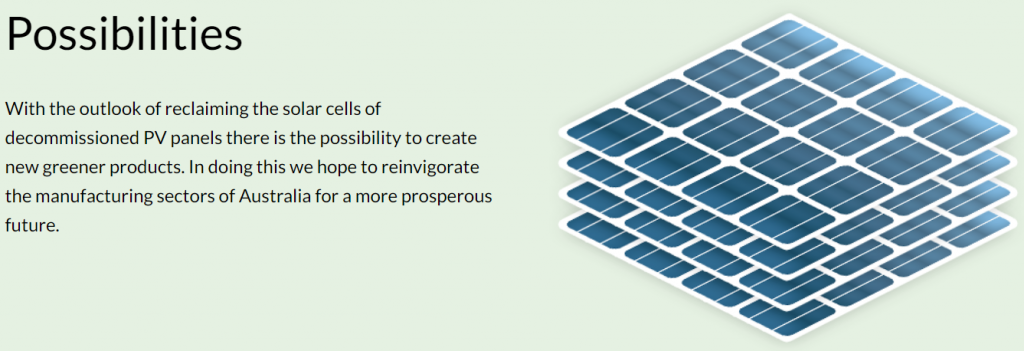Recycling solar panels is a topic which will be a lot more prevalent as the initial ‘wave’ panels begin to reach their end of life. Let’s take a look at what the plans are for trying to minimise the environmental impact and maximise the value of a used solar panel.
Recycling Solar Panels | Will there be a waste crisis for old panels?
Australia has one of the highest PV solar uptakes in the world. There are plenty of us who have had solar installed for a long time. So long, in fact, that people are talking about end of life strategies to dispose of/ repurpose solar panels, so that they don’t cause a problem for the environment.
Total Environment Centre director Jeff Angel has been crusading for the implementation of such strategies for solar panels, calling it a ‘systemic problem’:
“We’ve had a solar panel industry for years which is an important environmental initiative, and it should have been incumbent on government to act in concert with the growth of the industry so we have an environmentally responsible end-of-life strategy,” he said in a quote to the Sydney Morning Herald.
We’ve written previously about solar panel recycling and, although it’s good to see things like the ELSi project in Germany, there’s still a ways to go before we figure out the best way forward to recycle solar waste.

According to the director of Reclaim PV (the only dedicated photovoltaic recycler in Australia), Clive Fleming, they company recycles 90 per cent of materials in a panel. The company has been lobbying for state bans on landfill disposal of solar panels.
Australian Council of Recycling chief executive Peter Schmigel also had a quote in the SMH about how a proper plan for recycling PV cells could have a positive effect on the economy:
“Recovery rates have been out of sight since the beginning of the scheme, nobody has said anything at all about there being an inbuilt recycling cost. It generates jobs, it generates environmental outcomes and yet for some reason we have policymakers who are hesitant about [establishing similar schemes] for solar PVs and batteries,” he said.
We expect over the coming year or two we’ll hear a lot more about this, with Sustainability Victoria working on a ‘national approach to photovoltaic product stewardship’, with their recommendations presented to the environment ministers around the middle of this year.


